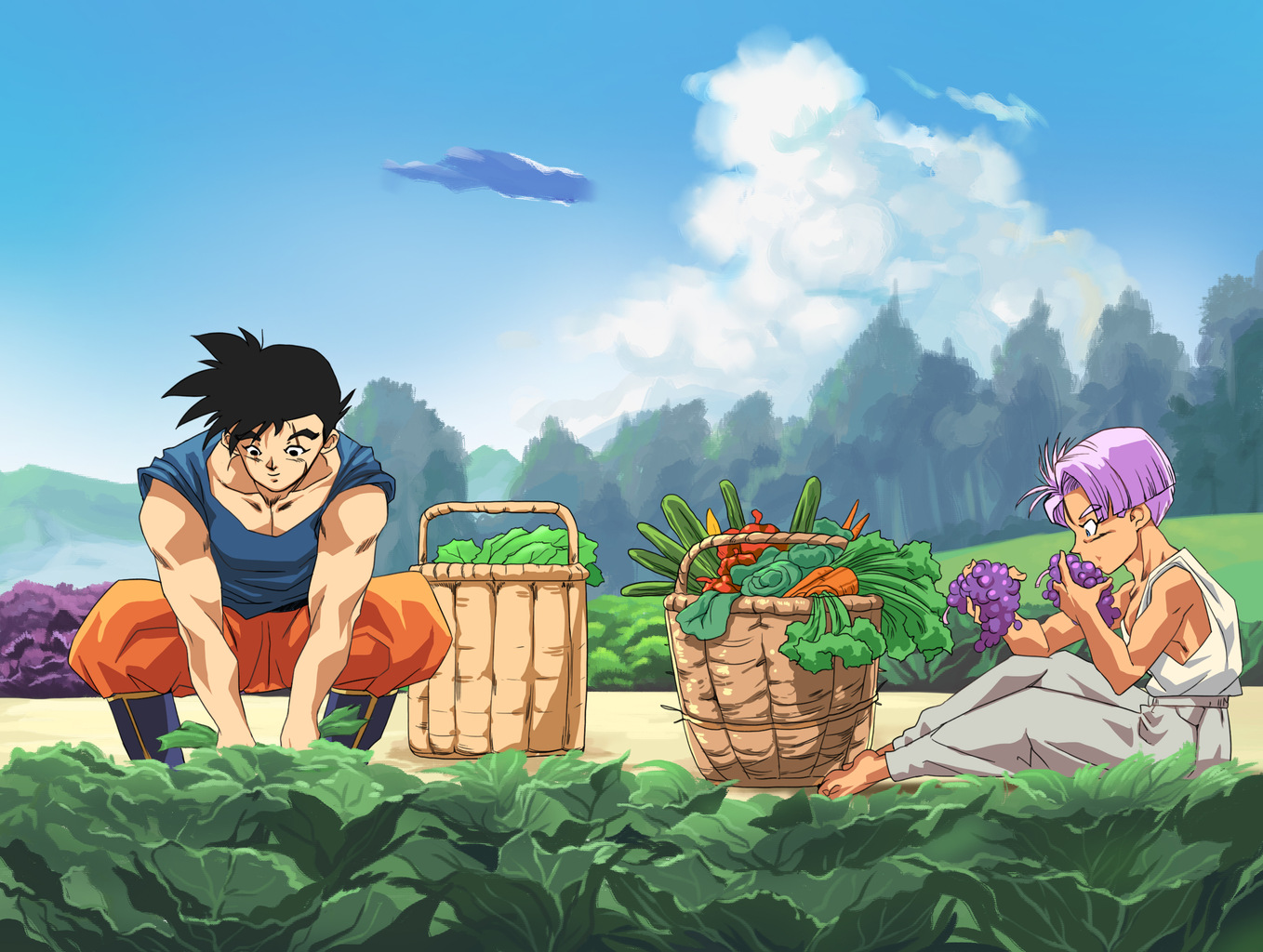
1) How to count in Japanese :
Zero = 0
Ichi = 1
Ni = 2
San = 3
Shi = 4
Go = 5
Roku = 6
Shichi = 7
Hachi = 8
Kyu = 9
Juu = 10
Juu-ichi = 11
Juu-ni = 12
Juu-san = 13
Juu-shi = 14
Juu-go = 15
Juu-roku = 16
Juu-nana = 17
Juu-hachi = 18
Juu-kyu = 19
Ni-juu = 20
Ni-juu-ichi = 21
Ni-juu-ni = 22
Ni-juu-san = 23
Ni-juu-shi = 24
Ni-juu- go = 25
Ni-juu-roku = 26
Ni-juu- nana = 27
Ni-juu- hachi = 28
Ni-juu-kyu = 29
San-juu = 30
Yon-juu = 40
Go-juu = 50
Roku-juu = 60
Shichi-juu/Nana-juu = 70
Hachi-juu = 80
Kyu-juu = 90
Hyaku = 100
2) Basic colours :
Akai = Red
Daidaiiro = Orange
Iieroo = Yellow
Midori = Green
Aoi = Blue
Muasaki = Purple
Kasshoku = Brown
Shiroi = White
Kuroi = Black
Nezumiiro = Grey
3) Popular Food and Drink :
Bento = Box Lunch
Biru ippon = A bottle of beer
Cha = Tea
Choko = Sake cup
Choshoku = Breakfast
Daikon = Radish
Dezato = Dessert
Donburi = Food Bowl
Eiyo Drink = Supplement Drink
Eikeben = Station Lunch
Fugu = Puffer fish
Gohan = Cooked Rice
Gyoza = Potsticker
Gyudon = Beef Bowl
Hashi = Chopsticks
Haze = Goby
Hisago = Gourd
Hiyamugi = Noodles
Ika = Squid and Cuttlefish
Kakigori-ki = Shaved Ice
Kare Raisu = Curry Rice
Kayu = Rice Porridge
Kyuri = Cucumber
Maguro = Tuna
Manju = Bun, Dumpling
Masu = Box measure
Miso = Soybean Paste
Misoshiru = Miso Soup
Mizu = Water
Mochi = Rice Cake
Nasu = Eggplant
Nigirimeshi = Rice Ball
Niku = Meat
Ninjin = Carrot
Nori = Seaweed
Odoburu – Appetizer
Okane = Money
Osato = Sugar
Osechi-ryori = New Year’s Food
Ramen = Noodles
Sakana = Fish
Sakazuki = Sake Cup
Satsumaimo = Sweet Potato
Senbei = Rice Cracker
Shio to kosho = Salt and pepper
Shoyu = Soy Sauce
Tako = Octopus
Tekka maki = Tuna roll
Tokkuri = Sake Flask
Tori = Chicken
Tsukemono = Pickle
Umeboshi = Salted Japanese Apricot
Umeshu = Plum Wine
Ungai = Eel
Yakisoba = Noodles
Yasai =Vegetables
Wain = Wine
4) Family and Relations :
-chan = an affectionate honorific, used on very young children, or a significant other.
-kun = honorific for a young boy or inferior worker
-sama = high honorific, reserved for gods, emperors, etc.
-san = general honorific, equivalent to “Mr.” or “Ms.”
-sensei = honorific used for teachers and doctors.
Kaasan = Mother
Tousan/Otousan = Father
Kyoudai = Brother
Aniki = Older sibling, usually used for a brother, particularly for the older of a set of twins.
Niisan/Oniisan = Older brother
Neesan/Oneesan = Older sister
Imouto = Younger sister
Obaasan – Grandmother
Ojiisan = Grandfather/Uncle
Ojosan/Ojousan = Something you might call a younger girl you don’t know
Watashi = I/me
Boku = I/me (reserved for males only)
Atashi = female “I”, equivalent to boku
Watashi no = My
Watahi-tachi = We
Anata = You, usually used between close relationships, meaning ‘dear’
Hito = Person
Kodomo = Child
Otoko = Male
Onna = Female
Shonen = Boy
Shoujo = Girl
5) Time’s Notions :
Kyo wa nannichi desuka? = What is the date today?
Asu wa nannichi desuka? = What is the date tomorrow?
Kino wa nannichi deshitaka? = What was the date yesterday?
Ohayo = Good morning
Konnichi wa = Good afternoon
Konban wa = Good evening
Sayonara = Good bye
Ja ne = See ya
Nanji desuka? = What time is it?
Shogo desu = It is noon
Ichiji desu = It is one o’clock
Niji desu = It is two o’clock
Sanji desu = It is three o’clock
Han = Half past the hour
Yoji han desu = It is four-thirty
Sanji nijuppun desu = It is three-twenty
Goji juppun desu = It is five-ten
Yonaka no juniji desu = It is midnight
Gozen = Morning
Gogo = Afternoon
Ima = Now
Ima sugu = Immediately
Ato de = Later
Choshoku = Breakfast
Chushoku =- Lunch
Yushoku = Dinner
Getsuyobi = Monday
Kayobi = Tuesday
Suiyobi = Wednesday
Mokuyobi = Thursday
Kinyobi = Friday
Doyobi = Saturday
Nichiyobi = Sunday
Ichi-gatsu = January
Ni-gatsu = February
San-gatsu = March
Shi-gatsu = April
Go-gatsu = May
Roku-gatsu = June
Shichi-gatsu = July
Hachi-gatsu = August
Ku-gatsu = September
Juu-gatsu = October
Juu-ichi-gatsu = November
Juu-ni-gatsu = December
6) Various Basic Terms :
Aaa (Aa) = General sound of agreement. Say, well, er, oh, ah
Ahou = Moron
Ai = Love
Aidoru = Idol Singer
Ai Shiteiru = I love you
Aisuru = Beloved
Akushu suru = Shaking hands
Ame = Rain
Anou = Hesitation sound, basically “Ummm…”
Ano = Say, well, er
Arigato = Thank you
Asahi = Morning sun
Atakku = Attack
Atena = Address
Baka = Idiot
Bakemono = Monster
Baku = Dream Eater
Benjo = Toilet
Bishonen or bishounen = Literally, beautiful man
Buruma/Bulma = Gym shorts
Bosozoku = Gang
Cha-no-yu = Tea Ceremony
Che = Essentially the same level of swearing as “shit”
Ch’kushou = “God damn it”
Chotto = A little bit
Daijobu or daijoubu = It’s/I’m alright
Daijouba desu ka? Ah. Daijoubu = Are you Ok? Yes, I’m OK
Dai suki = I love you
Dare (Dare da) = Who ?
Demo = But
Denwa = Telephone
Do itashi mashite = You’re welcome /It was nothing
Dojinshi = Fanzine
Doushite = Why ?
Doushio = “What now?” or “What do I do now?”
Dozo = Please
Ecchi = Pervert
Egao = Smile, smiling face
Enka = Popular Song
Enkai = Party
Eto = Er, let me see
Fundoshi = Loincloth
Furo = Bath
Ganbatte = “Good luck!” or “Do your best!”
Genkan = Entryway
Genki = Spirit
Geta = Wooden Sandals
Gi = Traditional outfit for fighting.
Ginga = Galaxy
Gomen = “I’m sorry”
Goryo = Vengeful Ghost
Gozaimasu = Uh.. not sure about this one. It comes at the end of sentences.
Hachimaki = Headband
Hagoita = Paddle
Hajimemashite = Nice to meet you
Hai = Yes
Hakama = Trousers
Hanabi = Fireworks
Hankachi = Handkercheif
Hana-Kanzashi = Hair Pin
Hanaste = “Let go!” Forceful. Hansei = Reflection, meditation
Hanko = Seal
Hara = Stomach, belly
Hari = Acupuncture
Haori = Jacket
Happi = Coat
Heika = Your Highness
Hentai = Pervert, but stronger than ‘ecchi’
Hibachi = Charcoal Heater
Hidoi = Cruel, terrible
Higure = Dusk, sunset, twilight
Hime = Princess, usually followed by ‘san’ or ‘sama’
Hontou = Really
Homurumu = Homeroom
Hoseki = Jewelry
Ichimonji = Spatula
Iie (Iya) = No
Irasshaimase = Welcome
Irezumi = Tattoo
Irori = Sunken Hearth
Irui = Clothing
Itai (Ite) = Painful (ouch)
Itsumo = Always
Iya da, dame, yamete, hanase = No, no, stop, let me go
Jinzoningen = Android
Jizaikagi = Pot Hook
Jubako = Stacking Boxes
Kagayaku = To shine
Kame = Turtle
Kami = Go
Kappogi = Cooking Apron
Katana = Breeze
Kawaii = Cute
Kaze = Wind
Kazu = Numbers
Ketsueki-gata = Blood Type
Ki = Life force, internal energy
Ki-Ai = Shout
Kimono = Traditional Robe
Kippu = Ticket
Kisama = “Bastard” or “You” (vulgar)
Kisu = Kiss
Kitto = Surely
Koi = Love
Koibito = Lover, sweetheart
Kokoro = “heart”, “mind” or “soul”
Kore kara zutto itsumademo = Always and forever
Koko Yakyu = High School Baseball
Kon’in = Marriage
Korosu = To kill
Kosui = Perfume
Kowai = Scary
Kudasai = Please
Kurisumasu = Christmas
Kyuushi = Death
Kushami = Sneeze
Kushi = Comb
Kuso (K’so) = Shit
Mahou = Magic
Makudonarudo = McDonald’s
Makura = Pillow
Masaka = Impossible or Never
Matte = Wait, imperative form
Minna = Everyone
Mino = Rainwear
Miyage = Souvenir
Nanase = Be sensible
Nanda/Nan desu ka? = What is it ?
Nani = What
Nasai = Adds formality, ex. “Gomen nasai”
Ne = At the end of a sentence, “isn’t it?”. At the beginning of a sentence, a general attention.
Neko = Cat
Ningen = Human
Ninmu = Mission
Obi = Belt, Sash
Ogenki desu ka? = Are you well?
Ogi = Folding Fan
Ohayou (Ohayo) = Good morning
Oi = Hey
Ojii = Prince, usually followed by ‘san’ or ‘sama’
Ojou = Queen usually followed by ‘san’ or ‘sama’
Okaeri = Welcome home
Omae = “You”, very rough
Omae wa ore no mono da = You belong to me
Omocha = Toys
Onegai = Please
Onna = Woman
Oou = King, usually followed by ‘san’ or ‘sama’
Ore = male “I”, rough.
Oyasumi = Good night
Owari = The End
Sailor Fuku = School uniform for girl
Saiyajin = Saiyan
Sando-gasa = Hat
Saru = Singe
Sei Barentain no Shukujitsu = Valentine’s Day
Shimatta = Damn
Shinbun = Newspaper
Shogi = Japanese “chess”
Shugaku Ryoko = School Trip
Soka = Is that so?
Sugoi = Amazing, wonderful, Cool, Excellent, etc.
Sumimasen = Excuse me
Tabi = Split-toed sock
Tabidatsu = Depart/departure
Takushi = Taxi
Teme = very rude “you”
Tenki = Weather
Tenshi = Angel
Tooi Yoake = Far off Dawn
Tsuki = Moon
Tsunokakushi = Headdress
Wai = Yay!
Wakarenai, wakarimasen = “I don’t know” or “I don’t understand”
Watashi = polite “I”, either sex
Watakushi = very polite “I”, either sex
Wakateru – I understand
Yamete = Stop! Imperative form
Yaoi (Yama nashi, imi nashi, ochi nashi) = “No climax, no meaning, no resolution” used to describe male/male relationships manga/stories
Yare yare = Well, well
Yaro = Rascal, i.e Bakayaro
Yoroshiku = “Please look favorably upon me”. Tradition when greeting someone for the first time
Yoshe or yoshi = All right!
Yoshi = Adoption
Yuino = Betrothal Gift
Yukata = Lightweight Kimono
Yume = Dream
Zabuton = Floor Cushion
Zori = Thong Sandals
Zutto = Forever
You can also check this page
http://tvtropes.org/pmwiki/pmwiki.php/UsefulNotes/JapaneseStockPhrases?from=Main.JapaneseStockPhrases

